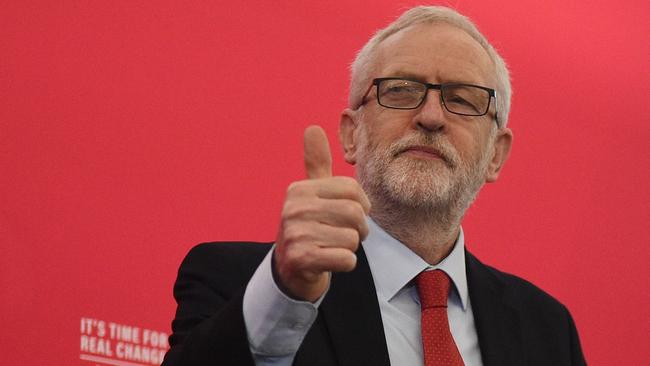Jeremy Corbyn’s ‘free’ broadband plan may actually cost £100bn
Experts say Labour’s plan to nationalise the UK’s broadband network will be a disaster for the telecommunications sector.

Labour’s plan to nationalise the country’s broadband network could cost as much as £100 billion, according to the chief executive of BT.
Philip Jansen questioned John McDonnell’s costing of Labour’s pledge to create a full-fibre network nationwide within a decade and provide free broadband to every home and business. He also claimed he had been given a personal assurance from the shadow chancellor that BT “was not on the list” of companies which were being targeted for nationalisation.
Labour says it can roll out the fastest form of broadband in ten years, for £20.3 billion, but Mr Jansen said that the total cost was more likely to be between £30 billion and £40 billion. The total cost of the policy, which includes a commitment to take BT Openreach into public ownership, could climb to £100 billion, he added.
Julian David, chief executive of the tech trade association techUK, said Labour’s plans would be a “disaster” for the sector. “Re-nationalisation would immediately halt the investment being driven not just by BT but the growing number of new and innovative companies that compete with BT,” he said.
READ MORE: Greg Sheridan — Johnson, Trump firm as masters of their universe | Inducements claim ‘typical Farage attention-seeking’
Richard Hooper, chairman of the Broadband Stakeholder Group, was equally sceptical. “Labour’s national monopoly model would wipe out, at a single blow, the existing and future investment plans, based on vigorous competition, reverse economic growth through years of delay and uncertainty, and cost tens of billions of pounds to the UK’s digital economy,” he said.
Although Labour insists that shareholders would be compensated in the form of bonds, pension funds are among investors now facing what Mr Jansen said would probably be a “deep discount” in the value of their assets.
The surprise talk of nationalisation - the fifth industry to be identified by Labour - threatens to damage relations with business leaders. In July Mr McDonnell appeared to rule out further nationalisations in an interview in The Sunday Times, insisting that he would stick to plans to take water, mail, rail and energy companies into public ownership. “There are no tricks up my sleeve - this is what we’re going to do,” he said. “This is the limit of our ambition when it comes to nationalisation.”
The shadow chancellor denied that he had been “fibbing”, and said that he had denied only a plan to nationalise the whole of BT Group.
Speaking to The Times, Mr Jansen said that he had received a personal assurance. “I’m a bit surprised, given John McDonnell told me personally in front of a number of people publicly [that BT would not be nationalised] - but politicians are entitled to change their minds.”
He added: “It was not a long time ago that John McDonnell had told me personally . . . that BT was not on the list. Now we are firmly on that list.”
The policy announcement, arguably Labour’s most radical so far, caught the Conservatives off guard. Boris Johnson described it as “crackpot” and a “crazed communist scheme” before the Tories changed tack and suggested it would be forbidden by EU state aid rules.
Stephen Barclay, the Brexit secretary, said: “Jeremy Corbyn is not being straight with the public. He knows perfectly well that his scheme to keep Britain in the EU means he will be unable to deliver on these grand promises.”
Mr McDonnell denied that, however. “We’ve taken legal advice throughout our approach and the legal advice we’ve had, which has been extensive, is it’s perfectly compatible.”
Investors remained calm, suggesting that the City is not pricing in a Labour majority at the election. Shares in BT closed 2.25p lower, or 1.1 per cent, to 193p, valuing the company at pounds 19 billion.
Polling by YouGov suggested that while 62 per cent of voters supported free broadband they are split on the merits of nationalising Openreach, with 32 per cent in favour and 31 per cent opposed.



To join the conversation, please log in. Don't have an account? Register
Join the conversation, you are commenting as Logout